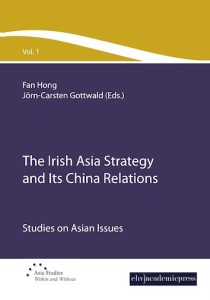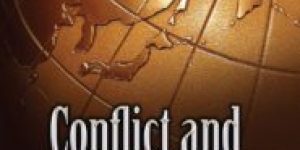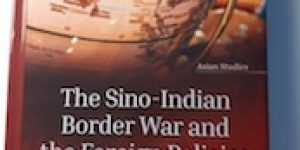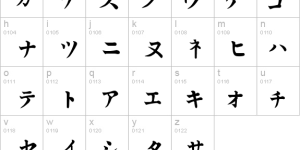The Irish Asia Strategy and Its China Relations: Appendix II ~ “Ireland & China: Friendship And Cooperation”
No comments yet Speech by An Taoiseach Mr Bertie Ahern TD at Tsinghua University,
Speech by An Taoiseach Mr Bertie Ahern TD at Tsinghua University,
Beijing Tuesday, 18 January 2005
President, distinguished guests,
I am pleased to be here today, at this centre of academic excellence which has educated so many of China ‘s leaders.
Tsinghua University reflects the energy of China in many ways:
· through its emphasis on change and development;
· through its openness and eagerness for international cooperation;
· through its commitment to high standards, exemplified by its motto of “self-discipline and social commitment”;
· and through its recognition of the challenge of balancing carefully the ancient and the modern, tradition and innovation, in a way which generates healthy and sustainable progress.
It is six years since my first visit to China. In that period, China has continued its remarkable economic and social transformation. China is playing an increasingly important role in international affairs. China is now very much a world power in every sense, with a solid and rapidly growing presence in the global economy.
Ireland is a strong supporter of Chinese engagement in the international community. We were at the forefront in welcoming China ‘s membership of the United Nations some three decades ago. And we recognise that China ‘s entry to the World Trade Organisation in 2001 was both a political and an economic landmark.
After my visit in 1998, I authorized the elaboration of an Asia Strategy, with a particular focus on China.
The aim of this Strategy is to ensure that the Irish Government and Irish enterprise work coherently to develop the important and many dimensional relationship between our two countries. As a result of that Strategy, we have strengthened our diplomatic and trade representation in China , both in Beijing and also through the opening of a Consulate General in Shanghai.
The adoption of the Asia Strategy by the Irish Government in 1999 has contributed in a significant way to the development of the relationship. Trade has increased very considerably.
Education links have also increased and Ireland is now attracting significant numbers of Chinese tourists. There is an active and popular Chinese community in Ireland – Chinese New Year is celebrated in Dublin as well as in Beijing. Cultural contacts have increased in both directions – I am always impressed by the impact that Riverdance has made here in China.
If Ireland ‘s interest in China has developed and expanded, so too has there been a growing interest in Ireland, here in China. This arises from a number of factors, for example:
· Ireland ‘s economic growth and record of economic achievement;
· our status as a knowledge-based high-tech economy with a strong track record of achievement in software, life sciences, and information technology in general;
· our regional development policies;
· and our active role and influence within the European Union.
The healthy and positive development of our relations has been nourished by regular high level visits.
The President of Ireland, Mary McAleese, paid a State visit to China in October 2003.
I have myself had two very friendly and productive meetings with Premier Wen Jiabao in the course of 2004, a year which marked the 25th anniversary of diplomatic relations between Ireland and China and which also saw the sixth Presidency by Ireland of the European Union.
Our Deputy Prime Minister visited China in 2000 and 2004.
Distinguished visitors to Ireland have included former Vice Premier Li Lanqing in 2000, former Premier Zhu Rongji in 2001, and Premier Wen Jiabao in May of 2004. Most recently, Vice Premier Huang Ju visited Ireland in November 2004.
There have also been exchanges at other senior levels.
Relations between China and Ireland are not only deepening. They are also widening.
I see my current visit as a platform for a further boost to the political, human, educational, cultural, trade and commercial relations between our two countries. We are now taking steps to reinvigorate our Asia Strategy as we enter into the second 25 years of our important relationship with China.
High-level visits should continue to develop, including in new fields. As a keen follower of sport, I look forward to greater contacts in this area as we approach the Beijing Olympics of 2008.
The constructive and friendly economic, human, cultural and trade links between us are based on sound political relations. I am happy to say that the political relationship between the Governments of China and Ireland are both friendly and flourishing.
A sign of a close and growing bilateral relationship is that it can include dialogue on a wide range of issues, including some which have started from different points of view. The question of human rights is a good example. I believe that bilateral discussion of such issues, and also discussion in structures such as the EU/China Human Rights Dialogue, contribute to building enhanced mutual understanding.
Business missions are driving forward our economic links. I hope that Irish and Chinese entrepreneurs will look increasingly at the direct investment opportunities which both countries offer. Education cooperation has an important role to play. The number of young Chinese students in Ireland has grown in recent years.
We want to strengthen contacts between Chinese universities, including Tsinghua University, and their Irish counterparts. In Ireland we have a respected and high quality English language educational system. This has been one of the chief engines driving our economic success. I would invite the students here today to consider studying at one of our educational institutions in Ireland.
Relations between China and Ireland show that distance and differences in size are no barriers to a warm and friendly relationship. Ireland has some 4 million inhabitants – less than one third of the population of the city of Beijing. China is the most populous nation on earth. The land
area of Ireland could fit into China many times.
But while the differences, particularly of scale, between our countries are obvious, I firmly believe that there are parallels in our respective national experiences which deepen mutual understanding.
Both China and Ireland have long histories and a strong sense of their past. China’s recorded history goes back 5000 years. Developed communities in Ireland existed from about the same period. More recently, 1500 years ago, Ireland began its long record of education when Irish scholars travelled and taught throughout Europe. In both countries, as we each develop economically, there is a strong sense of tradition as well as a strong sense of the importance of the correct balance between tradition and modernity.
Both countries worked actively throughout the last century to achieve their respective destinies.
Both countries were successful in creating the conditions in which they could become the subject and not the object of their histories.
In Ireland , as a new state, genuine national control of our destiny meant working to create the conditions for economic and social, as well as political progress. We had to work intensively to address our comparative economic underdevelopment and lack of investment capital.
Moreover, we had the additional challenge of creating enough employment in Ireland to ensure that many of our young people no longer had to emigrate in search of work and a prosperous future.
Indeed, it was an American President descended from Irish emigrants, John Fitzgerald Kennedy, who said on a visit to Ireland that “the achievement of nationhood is not an end, but a beginning”.
That beginning presented great challenges to Irish Governments in the newly independent Ireland. That first generation of leaders created a stable and democratic state and skilfully and successfully negotiated the dangerous decades of the 1930s and 1940s. But economic growth was slow in coming. Ireland’s record of slow growth and high emigration continued until the 1950s. It was only when Ireland committed to international economic engagement that the trend of underdevelopment and depopulation was reversed.
While Ireland ‘s size and geographical location are fixed, the present model of the Irish economy – an open, trading economy – was the result of a strategic choice.
Essentially it was a recognition by Irish leaders of foresight that, in the changing economic circumstances of the second half of the 20th century, certain conditions and polices were necessary for sustainable economic progress. These included:
· a policy of economic expansion;
· greater access to education;
· recognition of economic interdependence;
· effective regional economic policies;
· the vigorous promotion of trade, encouragement of foreign direct investment, and diversification of markets;
· the need for full involvement with the process of European integration.
This recognition and those strategic choices were central to our decision to seek membership of the European Community, now better known as the European Union. Ireland joined the European Community in 1973, and we have been an active and committed member ever since.
The industrial, economic, scientific, and educational polices adopted by successive Irish Governments have had profound effects on our employment patterns. The demands of a high tech economy have led to greater links between our university sector and enterprise.
In vigorously opening our economy, we created a range of special agencies and policies. For example, special economic zones, of which Shannon is best known. And agencies which worked closely with Irish and foreign enterprises to attract foreign investment and to support Irish exporters. Representatives of these agencies are among the business delegation which has accompanied me on my visit this week. We are ready to share our insights with our Chinese friends. I hope that we will also learn from the Chinese experience of economic and social transformation.
I spoke earlier of the European Union and its importance to Ireland. The European Union, through its economic and social mechanisms, and the access which membership gave to the European markets, was a major element in the process of Ireland’s economic and social transformation. European Union agricultural, regional and structural policies, and support for our national regional policies, were of great importance in assisting Irish Governments in developing the national economy.
But Ireland is also important to the European Union. We are a small country, but we have a clear, influential and respected voice within the Union.
The decision to join the European Union, and before that the United Nations, gave new and important platforms to Ireland to play a role in international and multilateral affairs. Not only as an issue of principle, but also as a matter of prudence, Ireland places strong reliance on the maintenance of a stable, peaceful and just international environment. We support a rule-based international order with clearly defined rights and obligations.
Ireland supports the rule of law as the organizing principle of international relations. Our Constitution enshrines Ireland’s devotion to the ideal of peace and friendly relations between nations based on international justice and morality.
Ireland, like China, sees the United Nations as the key multilateral framework. Ireland has been a committed member of the UN for nearly fifty years. We have served three terms on the UN Security Council. We will celebrate the fiftieth anniversary of our membership of the UN in December of this year. We have played an active and proud role in peacekeeping operations, and our military and police have been deployed in many such operations since our first involvement in UN peacekeeping over forty years ago. We support the efforts of the UN Secretary General to restructure and retool the United Nations to meet the new challenges it faces.
The importance of clear UN leadership has been amply demonstrated in recent days by the relief and reconstruction challenges posed by the enormous tragedy of the tsunami in South Asia.
China also places great emphasis on multilateral cooperation and peaceful coexistence. I am confident that China, as a permanent member of the UN Security Council with a strong interest in peace and development, will continue to play a leading and positive role in addressing the new and complex challenges that face the UN.
The international community has a duty to address causes of insecurity which have the potential to evolve into catastrophic situations. Many of the new security threats and challenges that we must face in common are vastly different from the traditional problems of the last century. The 21st century challenges of terrorism, proliferation of weapons of mass destruction, organized and transnational crime, the crippling burden of poverty – all of these can be fertile ground for the generation of cycles of insecurity and mistrust.
As partners in the international community, China and Ireland have a firm belief in the value of international cooperation and dialogue which aims at defusing tensions and preventing conflict.
The Chinese philosopher Sun Tzu said that the greatest test of a general’s skill was never to fight a battle. Thus the greatest challenge facing the international community is to prevent conflict and the causes of conflict, as opposed to dealing with its consequences.
I welcome China’s growing engagement with the European Union. One of my countrymen, John Hume, a winner of the Nobel Peace Prize, said that the European Union is itself an outstanding example of conflict resolution. Certainly, conflict between the members of the EU is unthinkable. The EU has exported democracy and has imported democracies. The process of EU enlargement has been a stabilizing factor in Europe. Increasingly, the EU is seeking to apply the principles of conflict prevention and support for effective multilateralism and the role of the United Nations. This is an important development as the Union develops its international role across a wide range of sectors – trade, commerce, aid, but also the growing role of the EU in the sphere of international peace and security.
I had the privilege of chairing the European Council when Ireland held the Presidency of the European Union in the first half of last year. I was pleased to conclude negotiations on a new constitution for the European Union, which gives a further boost to the process of European integration and will allow the Union to further develop its role in the wider international community.
The EU and China are becoming increasingly important trading partners. Our relations are entering a new phase. The EU’s strategic partnership with China has assumed growing importance. The recent EU Summit of Heads of State and Government, which I attended last month, welcomed the results of the seventh EU/China Summit held earlier in the Netherlands and confirmed the significant recent developments in EU/China relations. I am confident that we are on the threshold of a new and positive phase in EU/China relations. This is a development that we greatly welcome.
Regional integration and cooperation have been shown to be a potentially important stabilising influence in international affairs. It has been so in Europe. I am aware of China’s positive role in supporting regional cooperation in Asia, and in acting in support of multilateral approaches to issues, such as those relating to the Korean peninsula.
From my comments, I think that it will be clear that there are many issues on which Ireland and China have similar views. I am keen to maintain and intensify our cooperation and exchanges in all of the fields that I have mentioned.
In Ireland, literature is a particular focus of our culture and I have been impressed to learn that some of the greatest works of Irish literature have been translated into Chinese.
As a small country, we have been privileged to have four winners of the Nobel Prize for Literature – William Butler Yeats, George Bernard Shaw, Samuel Beckett and Seamus Heaney.
In looking at the great opportunities for cooperation between Ireland and China in all of the areas I have mentioned in my remarks today, I am reminded of what George Bernard Shaw once wrote: some people see things and say why. I dream things that never were, and say why not?
That is the ambitious motto that I believe should underpin the development of further relations between China and Ireland.
Thank you.
You May Also Like
Comments
Leave a Reply









